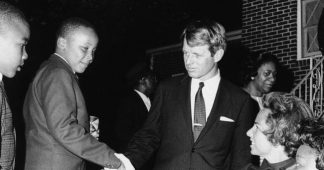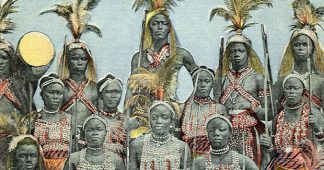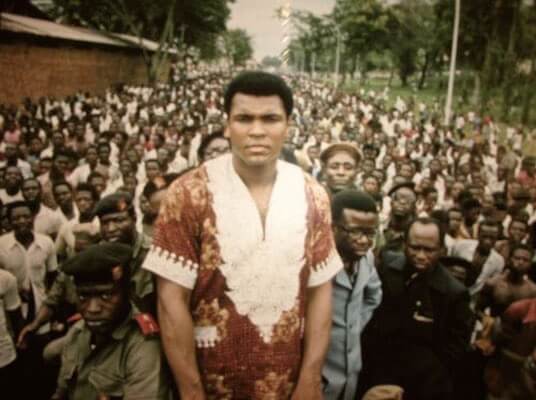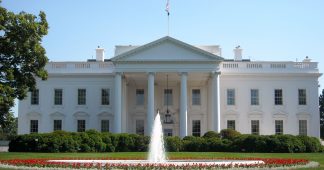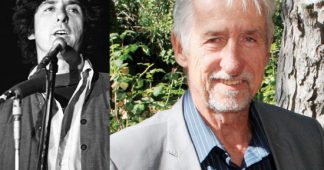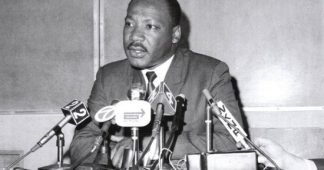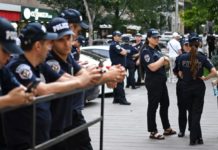January 16, 2017
The most compelling argument against the existence of a vast conspiracy orchestrating the assassinations of Jack and Bobby Kennedy is that the brothers were never threats to ruling power. The Kennedys were card-carrying members of the global elites, ran in their circles, catered to their whims, administered their political and economic bidding. (Just ask Fidel Castro.)
With MLK, it could be a different matter. And with the infinitely more radical Malcolm X it certainly was. Whatever King’s actual function–and the Reverend was given a hard time as something of an Uncle Tom by radicals in the later Sixties–the ruling power construed him as a threat.
King was assassinated almost forty-six years ago, at just after 6 in evening, as he stood on a balcony of the Lorraine motel in Memphis, Tennessee. A single rifle bullet hit him in the jaw, then severed his spinal cord. James Earl Ray, a white man, was convicted of the killing and sentenced to 99 years. Ray was certainly the gunman.
But there are credible theories of a conspiracy, possibly involving US Army intelligence, whose role in the life and death of Martin Luther King was explored by Stephens Tompkins in the Memphis Commercial Appeal in 1993.
The Army’s interest in the King family stretched back to 1917 when the War Department opened a file on King’s maternal grandfather, first president of Atlanta’s branch of the NAACP. King’s father, Martin Sr., also entered Army intelligence files as a potential troublemaker, as did Martin Jr. in 1947 when he was 18. He was attending Dorothy Lilley’s Intercollegiate School in Atlanta and 111th Military Intelligence Group in Fort McPherson in Atlanta suspected Ms Lilley of having Communist ties.
King’s famous denunciation of America’s war in Vietnam came exactly a year before his murder, before a crowd of 3,000 in the Riverside Church in Manhattan. He described Vietnam’s destruction at the hands of ”deadly Western arrogance,” insisting that ”we are on the side of the wealthy, and the secure, while we create a hell for the poor We were taking the black young men who had been crippled by our society and sending them eight thousand miles away to guarantee liberties in Southeast Asia which they had not found in southwest Georgia and East Harlem.”
US Army spies secretly recorded black radical Stokely Carmichael warning King, “The Man don’t care you call ghettos concentration camps, but when you tell him his war machine is nothing but hired killers you got trouble.” Carmichael was right.
After the 1967 Detroit riots 496 black men under arrest were interviewed by agents of the Army’s Psychological Operations Group, dressed as civilians. It turned out King was by far the most popular leader. That same year, watching the great antiwar march on Washington in October 1967 from the roof of the Pentagon Major General William Yarborough, assistant chief of staff for Army intelligence, concluded that “the empire was coming apart at the seams”. He thought there were too few reliable troops to fight the war in Vietnam and hold the line at home.
The Army increased surveillance on King. Green Berets and other Special Forces veterans from Vietnam began making street maps and identifying sniper sites in major American cities. The Ku Klux Klan was recruited by the 20th Special Forces Group, headquartered in Alabama, as a subsidiary intelligence network. The Army began offering 30.06 sniper rifles to police departments, including that of Memphis. King was dogged by spy units through early ’67. A Green Beret unit was operating in Memphis the day he was shot. The bullet that killed him came from a 30.06 rifle purchased in a Memphis store. Army intelligence chiefs became increasingly hysterical over the threat of King to national stability.
After his Vietnam speech the major US newspapers savaged King. Fifteen years later the New York Times was still bitter when the notion of a national holiday honoring the civil rights leader was being pressed–with ultimate success–by labor unions and black groups. “Why not a Martin Luther King Day?” an NYT editorial asked primly. “Dr King, a humble man, would have objected to giving that much importance to any individual. Nor should he be given singular tribute if that demeans other historical black figures.” Give one of them a holiday and they’ll all be wanting one.
Within hours of King’s murder rioting broke out in 80 cities across the country. Dozens of people, mostly black were killed. On April 6 the Oakland cornered the Black Panther leadership and when one of the young leaders, Bobby Hutton, emerged with his shirt off and his hands up, shot him dead. Further police executions of Panthers followed, most notoriously the killing of Fred Hampton and Mark Clark, as they slept, by the Chicago police, with FBI complicity, in December, 1969.
In contrast to Hutton, the Panthers and above all Malcolm X, slain in 1965, white liberal opinion, resentments at the disloyalty of the Riverside Church speech conveniently forgotten, has hailed King as a man who chose to work within the system and who furthermore failed to make any significant dent on business as usual.
In his last years King was haunted by a sense of failure. Amid a failed organizing campaign in Chicago he was booed at a mass meting there and, as he lay sleepless that night he wrote later that he knew why: “I had urged them [his fellow blacks ] to have faith in America and in white society They were now booing because they felt were unable to deliver on our promises They were now hostile because they were watching the dream they had so readily accepted turn into a nightmare.”
As the radical journalist Andrew Kopkind wrote shortly after King’s assassination, “That he failed to change the system that brutalizes his race is a profound relief to the white majority. As a reward they have now elevated his minor successes into major triumphs.”
Forty years on, America is still disfigured by racial injustice. Militant black leadership has all but disappeared. To black radicals Obama’s sedate homilies and respectful paeans to America’s ladders of advancement available to the industrious are to the fierce demands for justice of Malcolm X and of King in his more radical moments, as Muzak is to Charlie Parker.
Obama is caught, even as King was. The moment whites fear he is raising the political volume, he’s savaged with every bludgeon of convenience, starting with the robust sermons of the Reverend Jeremiah Wright, whose sin is to have reminded whites that there are black Americans who are really angry. “Damn America,” roared the Rev Wright. King was just as rough at Riverside Church in the speech that so terrified the white elites: “I knew that I could never again raise my voice against the violence of the oppressed in the ghettos without having first spoken clearly to the greatest purveyor of violence in the world today: my own government.”
Honesty of this sort from a black politician in America extorts due retribution.
This article is adapted and expanded from a piece which originally appeared in the January 2009 print edition of CounterPunch.
Published at https://www.counterpunch.org/2017/01/16/did-the-elites-have-martin-luther-king-jr-killed/
